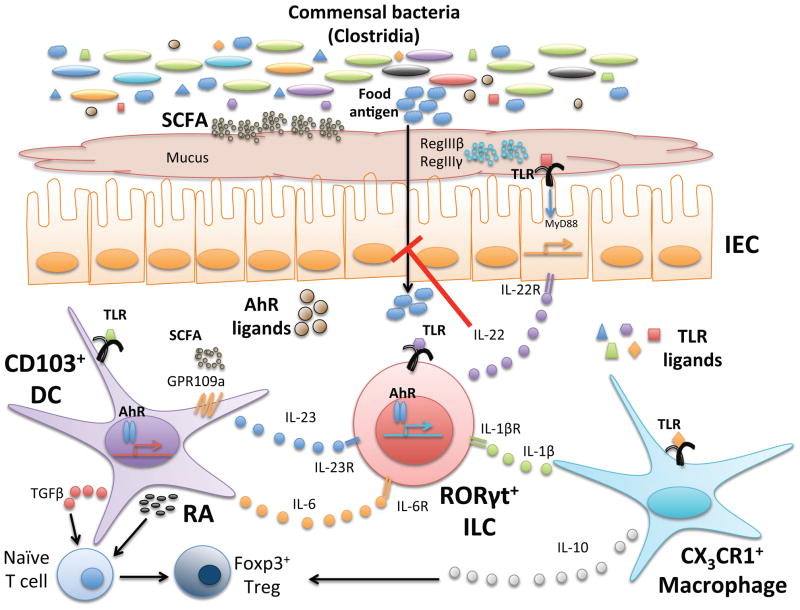Figure 1. Cellular and molecular pathways through which commensal bacteria regulate allergic responses to food.
Commensal bacteria and their products, particularly TLR ligands, AhR ligands, and short chain fatty acids (SCFA) can all influence intestinal homeostasis. TLR ligands act on IEC, CD103+ DC, CX3CR1+ macrophages, and RORγt+ ILC to promote cytokine secretion. TGF-β and dietary RA produced by activated DC and IL-10 from macrophages induce conversion of naïve T cells to Foxp3+ Treg and expand this regulatory population. SCFAs produced by bacterial fermentation of dietary fiber act on DC via GPCRs to further promote RA production and reinforce the tolerogenic environment. AhR ligands, derived from the diet or produced during bacterial metabolism, can also act on DC and ILC. IL-22 produced by ILC in response to cytokine stimulation (IL-23, IL6, or IL-1β) by DC or macrophages or by AhR stimulation, can act on the epithelium to promote barrier integrity by inducing expression of antimicrobial peptides RegIIIβ and RegIIIγ, increasing epithelial proliferation, and promoting mucus secretion. Together, this network of signals maintains homeostasis in the host and prevents responses to food. When these signals are altered or lost due to changes in the microbiota (dysbiosis), food allergies may develop.

